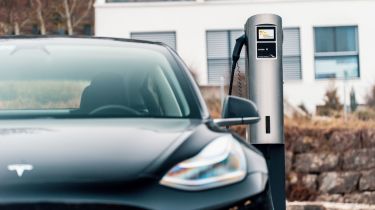Cybersecurity and car charging: why it matters and what can be done about it
Here’s how Juice Technology is leading the way in the realm of car charging cybersecurity
Electric-vehicle charging is a hot topic right now. Discussions often focus on things like the number of public chargers available and their quality, the cost of installing home wallboxes, and the price of using any kind of device in the midst of rising electricity rates.
However, there’s one subject few are talking about - cybersecurity. It’s often overlooked in favour of the more obvious physical safety concerns addressed through means such as location choice, lighting and CCTV camera installation. All of these things are important, but it’s vital that cybersecurity is considered also, and this is a key mission for Juice Technology.
What are the threats?
Smart charging stations belong to the ‘Internet of Things’ - in other words, they’re part of our highly connected modern world. This does, unfortunately, make them vulnerable to cybercriminal activity. There are wide-ranging potential consequences. One is ‘denial of service’, in which a charge unit could be rendered inoperable. But both users’ data and money could be at risk of theft, and blackmailing is a possibility, too.
"A lot of vending machines are better protected than charging stations," Thomas R. Köhler, cybersecurity expert and member of the Board of Directors of Juice Technology AG explains. "The possibilities for cyberattack are many and varied, and not very complex, either. An attacker can cull or manipulate data in poorly secured electronics, and thereby take control of the system and misuse it for all kinds of criminal activities."
How can the danger be addressed?
For Juice Technology, it’s all about considering cybersecurity as early as possible in the development of any connected product, using ‘Software First’ and ‘’Security By Design’ approaches. Juice uses proprietary chipsets and encrypted communication systems, and continually tests the robustness of the virtual security using both its in-house team and independent software engineers.
Christoph Erni, founder and CEO of Juice Technology, says: "Young start-ups or purely hardware manufacturers who've never focused that closely on software often underestimate the diverse range of sources of cyber threats that deficient software security can pose.
“The far-reaching consequences of cyber attacks can be devastating. Besides the damage or even loss of data or failure of computers and entire systems, the resultant loss of productivity can be dramatic – not to mention the damage to the company’s image.”
It’s through this work that Juice has achieved the globally recognised ISO 27001 standard, which is considered the most important certification in the world of cybersecurity. With this in mind, whether you’re using a public charger built by Juice Technology or have one of its home wallboxes installed, you can be confident in the robustness of its cybersecurity measures.
For Juice, however, it’s about more than just strengthening the resilience of its own products; the company wants to shine a light on the risk of cybersecurity breaches to attract attention from competitors, service providers, power companies, manufacturers and others. In prompting a more stringent effort for cybersecurity industry-wide, the realm of e-mobility can be made safer for all.
So important is cybersecurity to Juice Technology that it was put at the forefront of the Juice World Charging Day, which took place on 6 September 2021. During the presentation, a three-pillar strategy for safety in e-mobility was outlined, made up of physical security, user security and cybersecurity.
Who is Juice Technology?
Juice Technology AG is a producer of electric vehicle charging solutions that operates worldwide. It’s one of only a few full-range vendors in the sector, offering everything from portable devices like the Juice Booster 2 to large fast chargers.
Click here to find out more about Juice Technology and what makes its products different.




